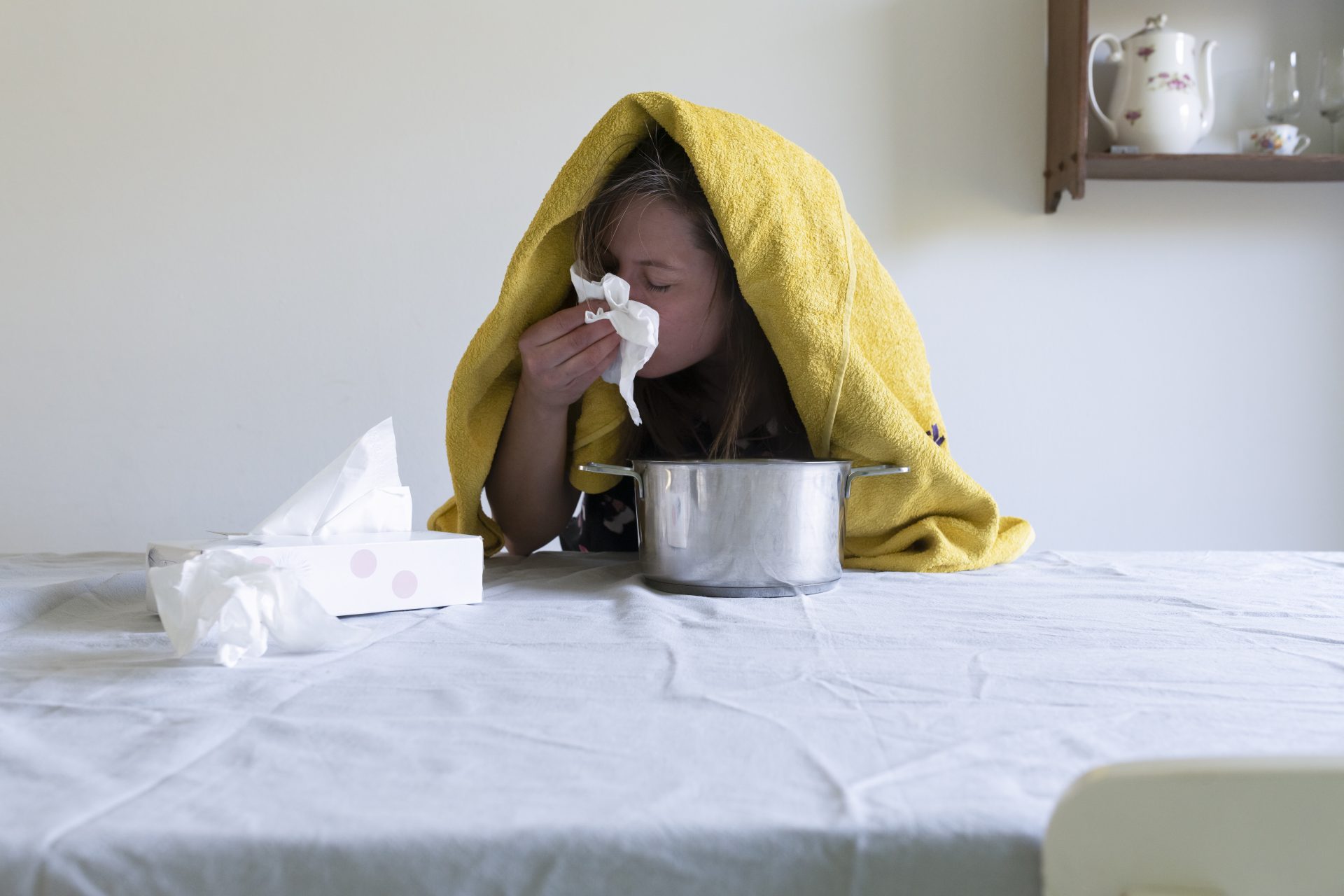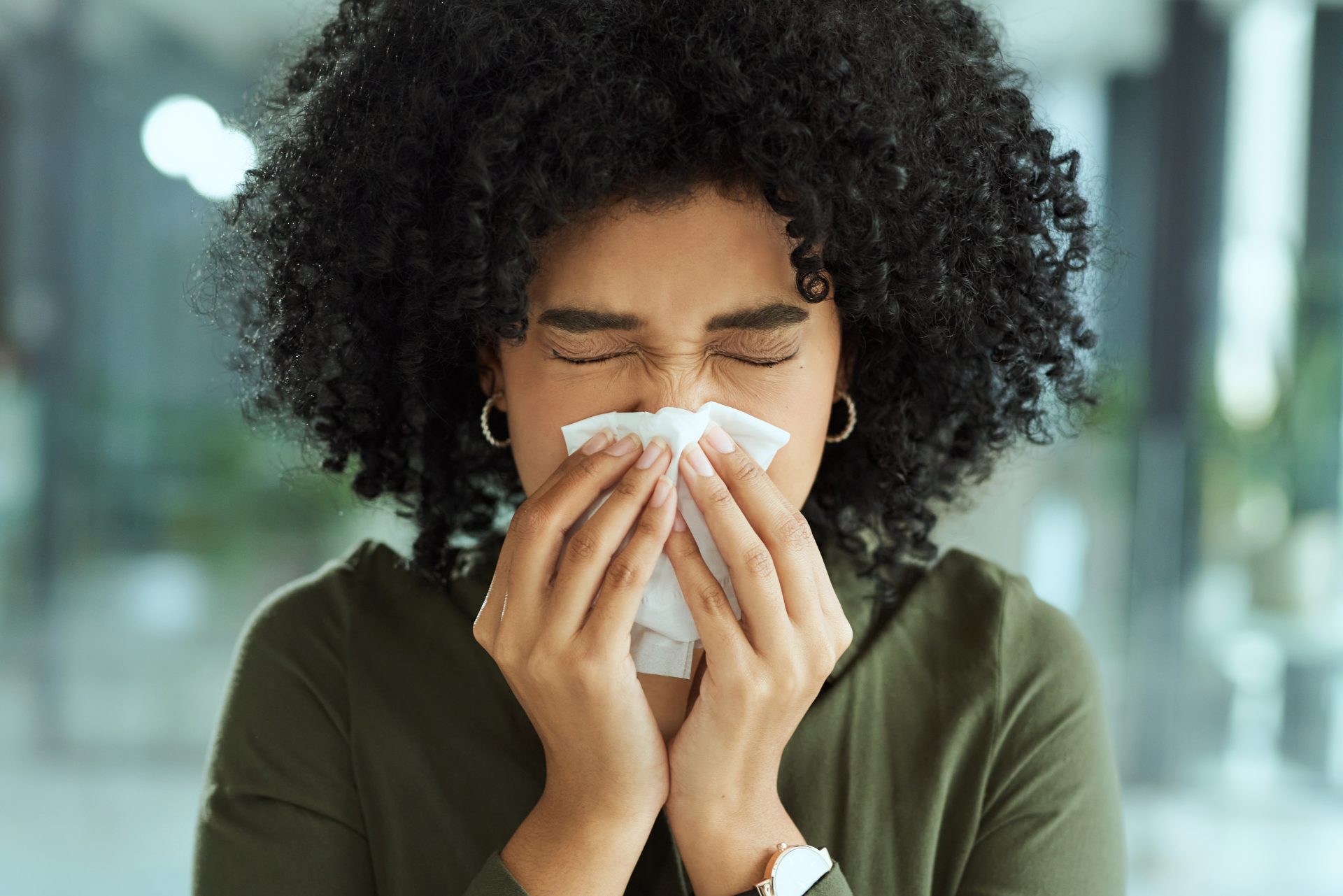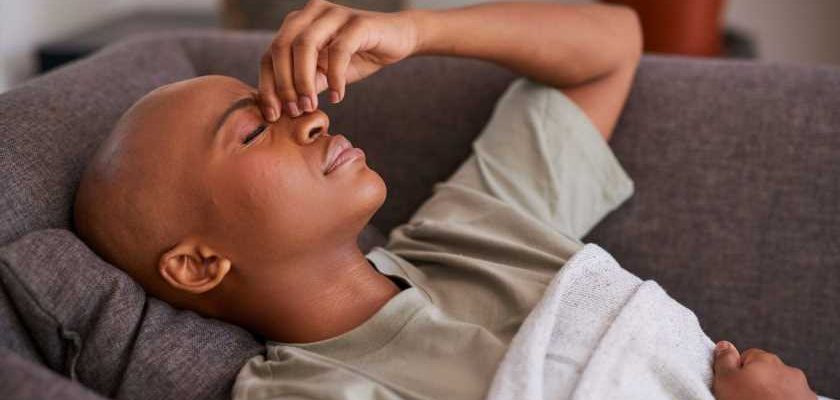Got a cold? Can’t sleep? Lisa Bowman explores how to get a good night’s shut-eye when you’re feeling rough.
Right now, Covid cases are back on the rise. If you’ve not succumbed to the dreaded double line yet, you might have fallen victim to the newest bout of autumn cold that’s doing the rounds. Whichever one you’re struggling with, you’re no doubt going to be feeling a bit ropey – especially if you’re sleep-deprived.
“Congestion caused by either a virus or allergies can greatly affect the quality of our sleep, which in turn affects our physical and mental health,” explains Dr Lindsay Browning, psychologist, neuroscientist and sleep expert at And So To Bed.
You may also like
Why sleeping on your side is better for brain health, digestion and energy, according to scientists
“Cold symptoms are usually worse at night – when laying down, the mucus cannot drain in the same way it would when gravity is helping, leading to disturbed breathing or a cough caused by post-nasal drip.”
Not great news for our dripping noses, is it?
How to ease congestion
The common cold is a viral infection with no known cure, but luckily, there are a few things you can do to ease discomfort
“Symptoms of a cold can include a blocked or runny nose, a sore throat, headache, cough, sneezing, a raised temperature and loss of taste and smell,” says Thorrun Govind, pharmacist and chair of the Royal Pharmaceutical Society.
Take painkillers for headaches and fevers
“You can help ease aches or lower a temperature with painkillers like paracetamol or ibuprofen – just be sure to take ibuprofen with food to protect the stomach.”

Use decongestants for blocked noses
When you have a cold, the blood vessels lining the nasal cavity swell, causing that bunged-up feeling. The inflammation also stimulates mucus glands, which is why we get a runny nose.
Decongestants can be topical (nasal sprays) or oral (tablets) and may help ease inflammation in the nose, giving you more room to breathe.
A 2009 study suggested that decongestants containing pseudoephedrine were more effective than those containing phenylephrine, although further research is required.
“It’s difficult to say which is better, but a brand of decongestant containing pseudoephedrine is Sudafed, although this is only available over the counter,” advises Govind.
“However, it’s cheaper to buy a generic, so ask your pharmacist what they advise.”
Watch your medication
Govind also warns that many cough and cold medicines contain paracetamol or ibuprofen, so make sure you’re not taking more than the recommended dose. Be aware that some cold and flu tablets also contain caffeine, so stock up on non-caffeinated versions for the afternoon/evening, unless you enjoy a side of restlessness with your snot.
You may also like
Should you exercise when you have a cold? A doctor explains how to work out when you’re sick
Soothe your way into slumber
Steam to get rid of a blocked nose
Not keen on pills? Try steaming, says Dr Amina Ahmed: “Steam therapy at night is good for a blocked nose – this can be a bowl of water, a facial steamer or a warm shower. A cup of water on the radiator (or a humidifier) also prevents dry air and coughing and stops the mucus getting too dry and difficult to cough out.”
Drink milk and honey for coughs
Can’t stop coughing? Bradford advises having a warm drink to heat the throat and chest area, or a soothing mix of milk and honey.
Rearrange your bed
Handily, your bed set-up can also help ease discomfort.
“Try elevating your head by adding an extra pillow and shifting your sleeping position to a slightly more seated one, remaining on your back,” suggests Browning.
“This will allow excess mucus to drain, lessening the irritation.”
If you have a cough and are a fan of vapour rub, Bradford says to take care: “It can cause a runny nose, which will make a cough worse.”
Preventing pollen from ruining your rest
Hay fever – formally known as seasonal allergic rhinitis – is an allergic reaction to plant pollen, which is most likely to happen in the UK between April to September, when the pollen count is at its highest. According to the NHS, one in five people in the UK will suffer from hay fever. While hayfever season is officially over, there’s just a chance that if you do live with allergies, you might come into contact with a rogue irritant.
“Hay fever symptoms can include sneezing and coughing, a runny or blocked nose, itchy, red or watery eyes, pain around your temples, headache and feeling tired,” explains Govind.
Take your antihistamines
“You can buy drowsy or non-drowsy antihistamines – which lessen certain symptoms – so you may choose to take a drowsy one (containing chlorphenamine maleate, which is in the brand Piriton) if symptoms are worse at night, to help you nod off.”

Luckily, even if you’ve run out of meds, there are some simple tricks to help you get a good night’s sleep.
Change your clothing
“One of the easiest steps is to change your clothes after you’ve been outside, to wash pollen off and minimise transfer of it around your bedroom,” advises Giulia Guerrini, lead pharmacist at online pharmacy Medino.
Take regular showers
“Take a shower and rinse your hair before going to bed to get rid of pollen – you don’t have to use shampoo each time; a simple wash with water will do the job.
Keep windows closed
“Try to keep your windows closed as much as you can, especially when the pollen count is high. You might want a breeze to keep the room cool, but closing them will ensure that pollen can’t enter your house.”
Use vapour rub
Rubbing Vaseline in the nose can reduce the risk of antigens entering, according to Bradford: “This is especially helpful for pregnant women who may not be able to use medication.”
Purify the air
Dr Browning also suggests investing in an air purifier, which will help remove pollen and dust particles, and drying laundered bedding indoors, to minimise the risk of pollen sticking to it.
If you have any concerns about your health, please speak to your GP, and always check with a healthcare professional before taking medication, if you’re on other meds. Good luck, sleepyheads.
Images: Getty
Source: Read Full Article
